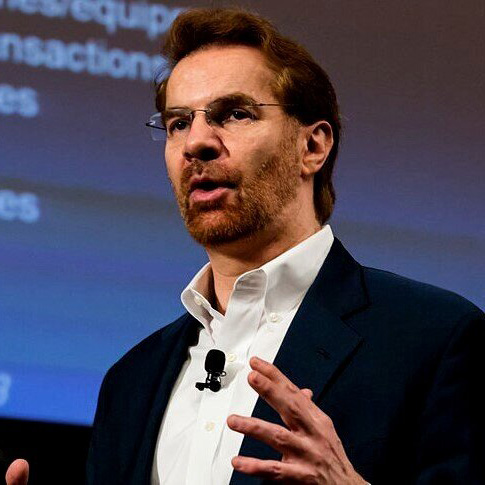GDP-B: Accounting for the value of new and free goods in the digital economy
As technology continues to grow and evolve, so too does the way we interact with each other and the world around us. As billions of connections are made every day, this hyperconnectivity is strengthening our digital economy, but it's also undermining conventional notions about how businesses are structured; how firms communicate; how consumers obtain goods, information and services; and how this is measured, leaving economists questioning the metrics behind standard statistical agency reports for GDP (gross domestic product) - particularly in relation to new and free goods.
At this year's Colin Clark Memorial Lecture, Professor Erik Brynjolfsson explains how potential mismeasurement can arise from not fully accounting for new and free goods, while also putting forward a new framework for measuring welfare change and real GDP growth.
The new metric, labelled GDP-B as it captures the benefits associated with new and free goods, is seen to go “beyond GDP”.
Professor Brynjolfsson speaks to his research applying this framework to several empirical examples - including Facebook and smartphone cameras - to estimate their valuations through incentive-compatible choice experiments with findings adding up to 0.11 percentage points to welfare growth per year.
 About the speaker - Professor Erik Brynjolfsson
About the speaker - Professor Erik Brynjolfsson
Professor Erik Brynjolfsson is the Jerry Yang and Akiko Yamazaki Professor and Senior Fellow at the Stanford Institute for Human-Centered AI (HAI), and Director of the Stanford Digital Economy Lab. He is the Ralph Landau Senior Fellow at the Stanford Institute for Economic Policy Research (SIEPR) and holds appointments at the Stanford Graduate School of Business, Stanford Department of Economics and a Research Associate at the National Bureau of Economic Research (NBER).
One of the most-cited authors on the economics of information, Brynjolfsson was among the first researchers to measure productivity contributions of IT and the complementary role of organizational capital and other intangibles. He has done pioneering research on digital commerce, the Long Tail, bundling and pricing models, intangible assets and the effects of IT on business strategy, productivity and performance.
Brynjolfsson speaks globally and is the author of nine books including, with co-author Andrew McAfee, best-seller The Second Machine Age: Work, Progress and Prosperity in a Time of Brilliant Technologies, and Machine, Platform, Crowd: Harnessing Our Digital Future as well as over 100 academic articles and five patents. He holds Bachelors and Masters degrees from Harvard University in applied mathematics and decision sciences and a PhD from MIT in managerial economics.
About Colin Clark Memorial Lecture
The Colin Clark Memorial Lecture is our most prestigious annual event, now in its 33rd year.
It is held each year to recognise Dr Colin Clark’s outstanding contribution to the field of economics. Dr Colin Clark was a UQ Economics academic whose work on national income accounting was fundamentally important to the development of macroeconomics and to the approach of John Maynard Keynes. Dr Clark's greatest contribution to economics was his pioneering role in the construction of national accounts.
